Glutamine does not contain gluten, however, this is not a clear cut yes or no answer. Gluten actually contains high amounts of glutamine, and obviously the names are very similar, however, L-glutamine are usually highly purified and are not likely to contain any gluten.
But you should be careful with peptide supplements that may be made from grains that do contain gluten.
Gluten Free Confidence Score of Glutamine
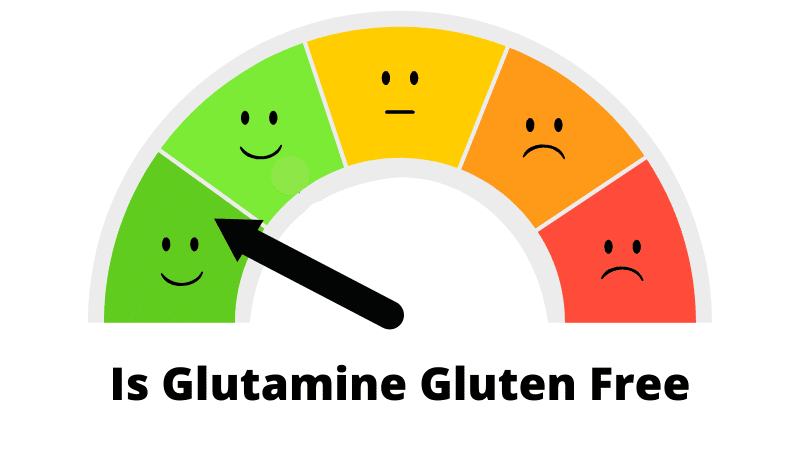
The first thing you need to understand is that it is an amino acid produced by our body. It can also be present naturally in various protein-rich foods, including both plant and animal sources. There are two types of glutamine present in health supplements:
- L-Glutamine
- Glutamine peptides.
Of these, L-Glutamine is free from gluten. It is widely used in gluten free supplements because it is free from gluten. You can consume them without worrying about allergic reactions. Interestingly, wheat gluten has glutamic acid. But people who react to gluten don’t have allergic reactions from L-Glutamine.
Glutamine bonded peptides, on the other hand, might be derived from wheat. If you are allergic to gluten or suffer from celiac disease, you should avoid having any glutamine supplement that contains glutamine peptides. The brand is not obligated to reveal the source of glutamine peptides used in its product. So it is better to avoid it.
When buying glutamine supplements, you also need to be careful about the other ingredients in the product. Supplements often contain many flavoring agents, fillers, preservatives, and other additives. It is essential to make sure that these additional ingredients do not have gluten hiding in them.
To ensure that you get the best of the glutamine products without getting allergic reactions, you should always check the ingredients label. That way, you can identify if there’s any gluten ingredient in it. You can reach out to brands to know more. The ideal solution is to buy certified gluten free supplements.
Best Gluten Free Glutamine Supplements
Even if you are a fitness freak with celiac disease or gluten allergy, you don’t need to stop taking glutamine supplements. After all, it is an essential part of your diet that helps the body when it is stressed. The best thing to do would be to find gluten free supplements with L-Glutamine.
1. Essential Stacks Gut L-Glutamine Powder

The L-Glutamine supplement powder from the house of Essential Stacks is designed to keep your gut healthy. It is an unflavored supplement to keep away sweetening or flavoring agents.
It is in the form of a powder that’s easy to mix in your beverage without worrying about lumps. So you won’t need a blender.
Your body absorbs it quickly, and your health enjoys incredible efforts. This glutamine supplement is specially designed for those who need some support for their intestinal health.
So, it is free from major allergens, including gluten. It is certified as gluten-free, and it also doesn’t contain any nasty fillers.
2. Solgar L-Glutamine Tablets
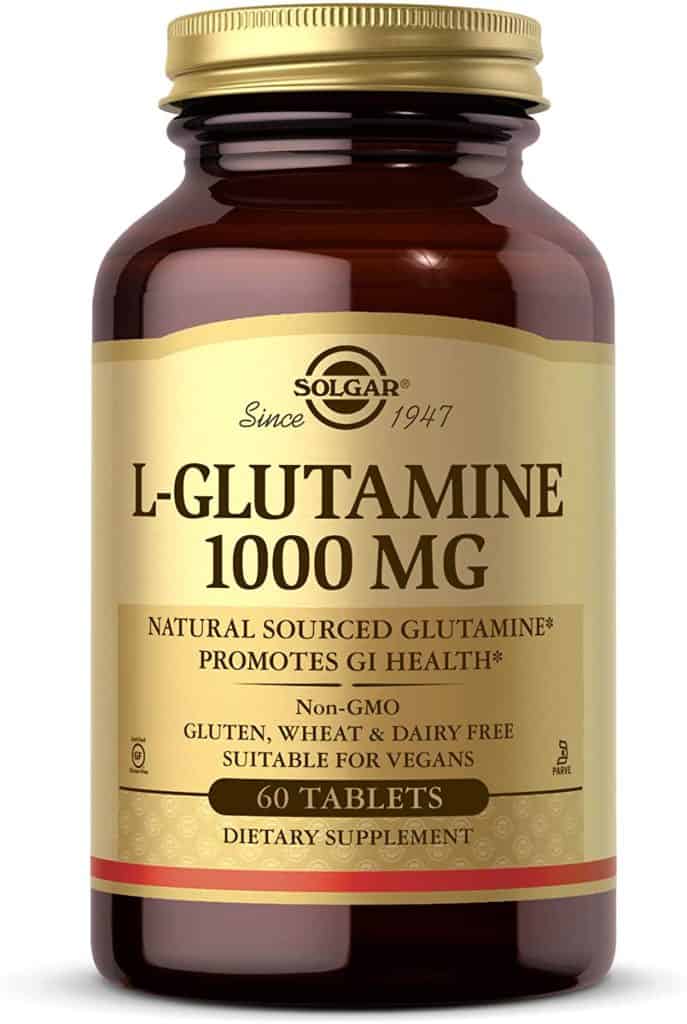
Are you not a big fan of consuming supplements in the form of powder? To make the consumption of glutamine easier, go for L-Glutamine tablets by Solgar.
The tablets are designed to boost gastrointestinal health and act as a natural muscle food, regulating nitrogen movement to and from muscle tissues.
It also acts as a significant source of fuel for the cells in your intestine and brain, as well as for the immune system. The supplement is formulated to boost its absorption and assimilation. This non-GMO glutamine supplement is ideal for those with gluten allergies and people who follow a vegan diet.
3. Nutricost L-Glutamine Powder
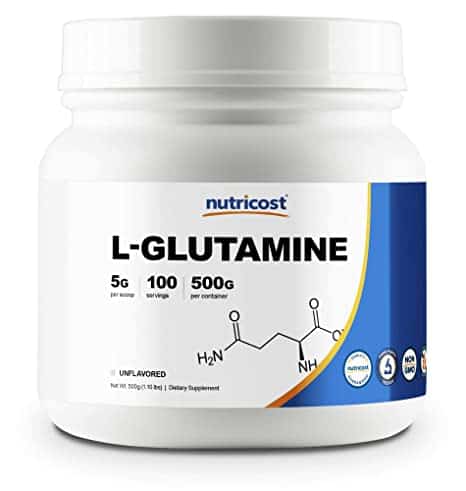
The L-Glutamine supplement powder by Nutricost is a high-quality glutamine supplement. Users highly trust it in the fitness community because they are tested in third-party labs to prove the claims’ authenticity. It is developed in GMP-compliant and FDA-approved facilities, as well.
This glutamine supplement proudly shows off the “gluten free” label on the container. It is, therefore, safe for you to consume if you are allergic to gluten. It also fits easily into vegan diet routines. It is unflavored, which means there is no artificial coloring agent in the supplement, making it safe.
4. California Gold Nutrition Ajipure L-Glutamine Powder
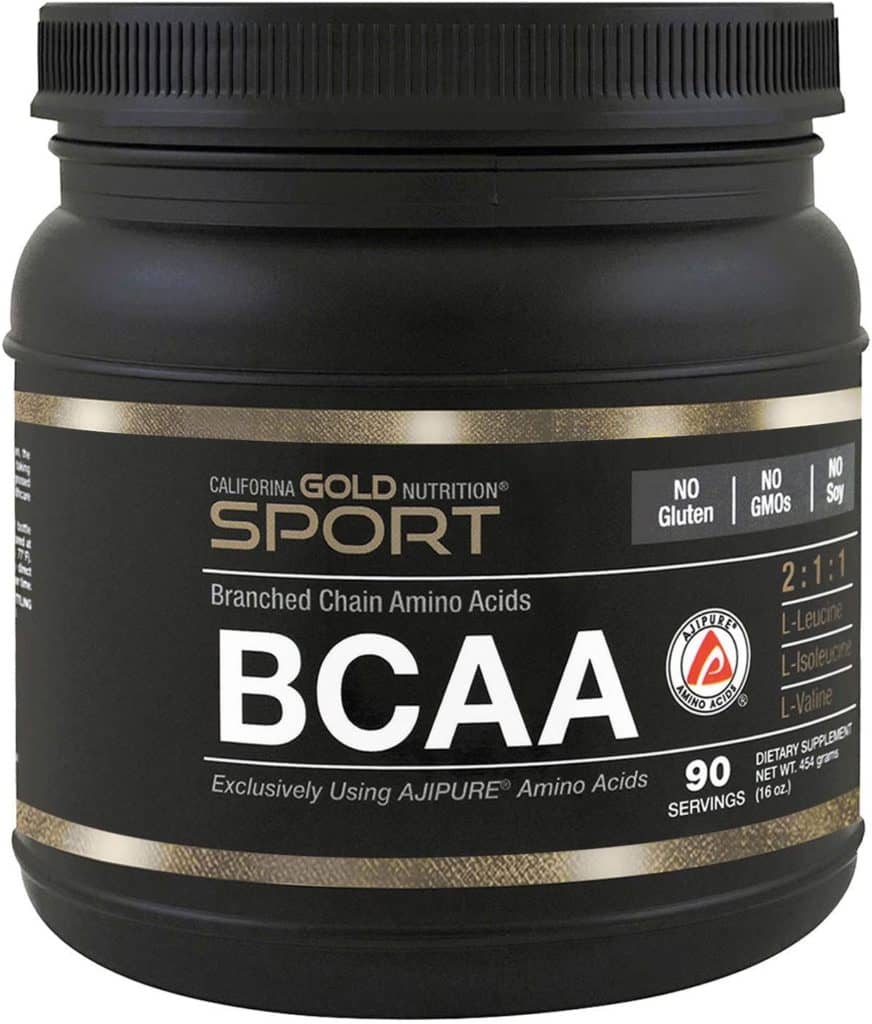
The Ajipure L-Glutamine powder, from the house of California Gold Nutrition, contains glutamine derived from Ajinomoto. It is a premium quality product that plays an essential role in synthesizing muscle protein. It is free from all allergens, like dairy, nuts, eggs, shellfish, soy, and of course, gluten.
The product comes in a stylish black container that mentions that it is gluten-free. Besides, it is free from additives like coloring, flavoring, sweetening, or thickening agents (natural and artificial), fillers, creamers, hydrogenated oil, or any other harmful ingredients that can harm you any way.
5. The Healthy Tree Gut Balance L-Glutamine Powder
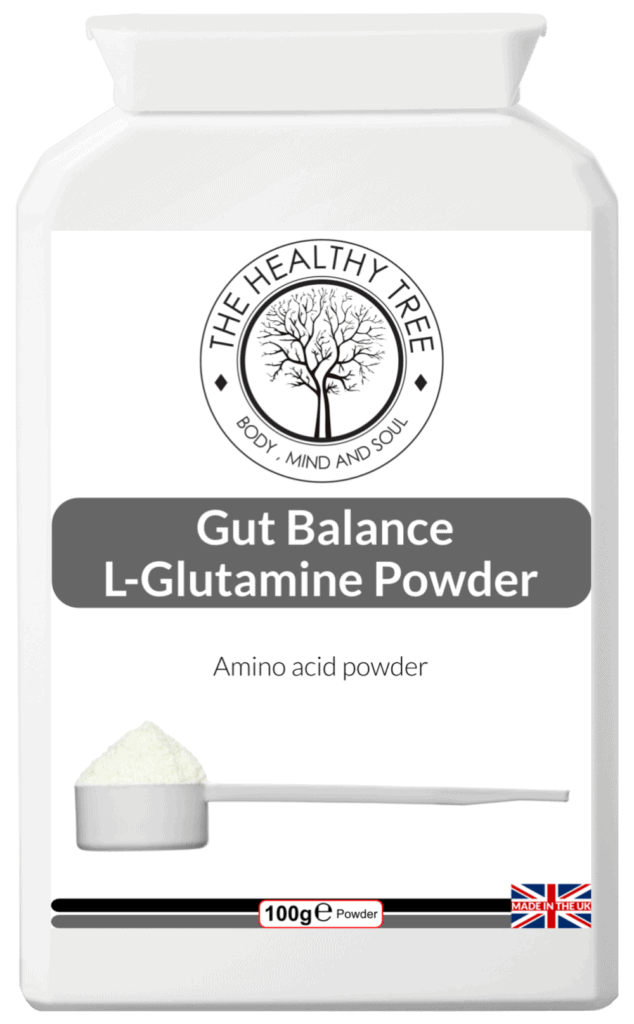
The Gut Balance L-Glutamine Powder by The Healthy Tree is marketed as a gluten free glutamine supplement. It is available in the form of powder to be made into a healthy concoction for your body.
It is perfect for your digestive system and boosts the repairing process of the intestinal tissues.
You can mix it with other supplements and products for a complete health drink, too. This supplement adds amino acids to your body, acting as the protein building blocks for cells and tissues’ structure.
The supplement does not contain artificial additives and is free from harmful allergens.
6. Protocol For Life Balance L-Glutamine Pure Powder
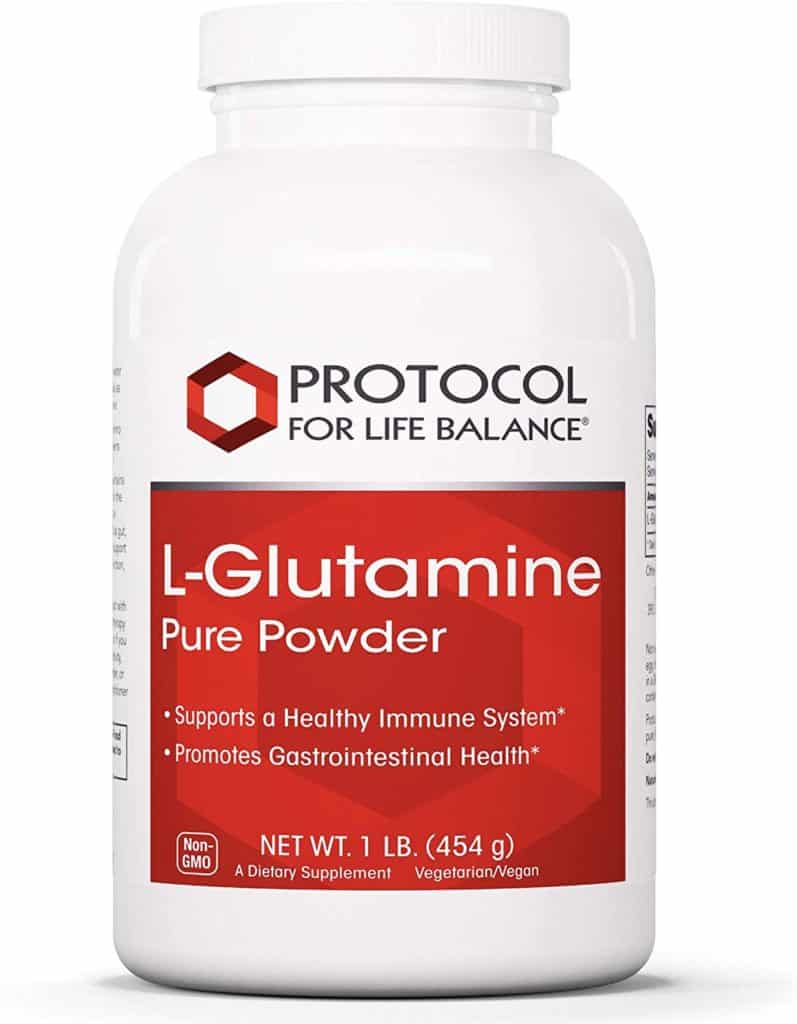
To ensure that the acid-base balance in your body is adequately regulated and the nitrogen balance is maintained, you can choose Protocol For Life Balance L-Glutamine Pure Powder as a source of amino acids. Its glutamine content ensures that other amino acids are boosted by acting as a nitrogen reservoir.
This premium supplement has a natural formulation to include L-Glutamine without any other harmful ingredient. It is free from allergens, including gluten, as mentioned on the list of ingredients.
Hence, it is marketed as a gluten free product. It is also manufactured in GMP-free facilities to maximize your safety.
7. Myprotein L-Glutamine Powder
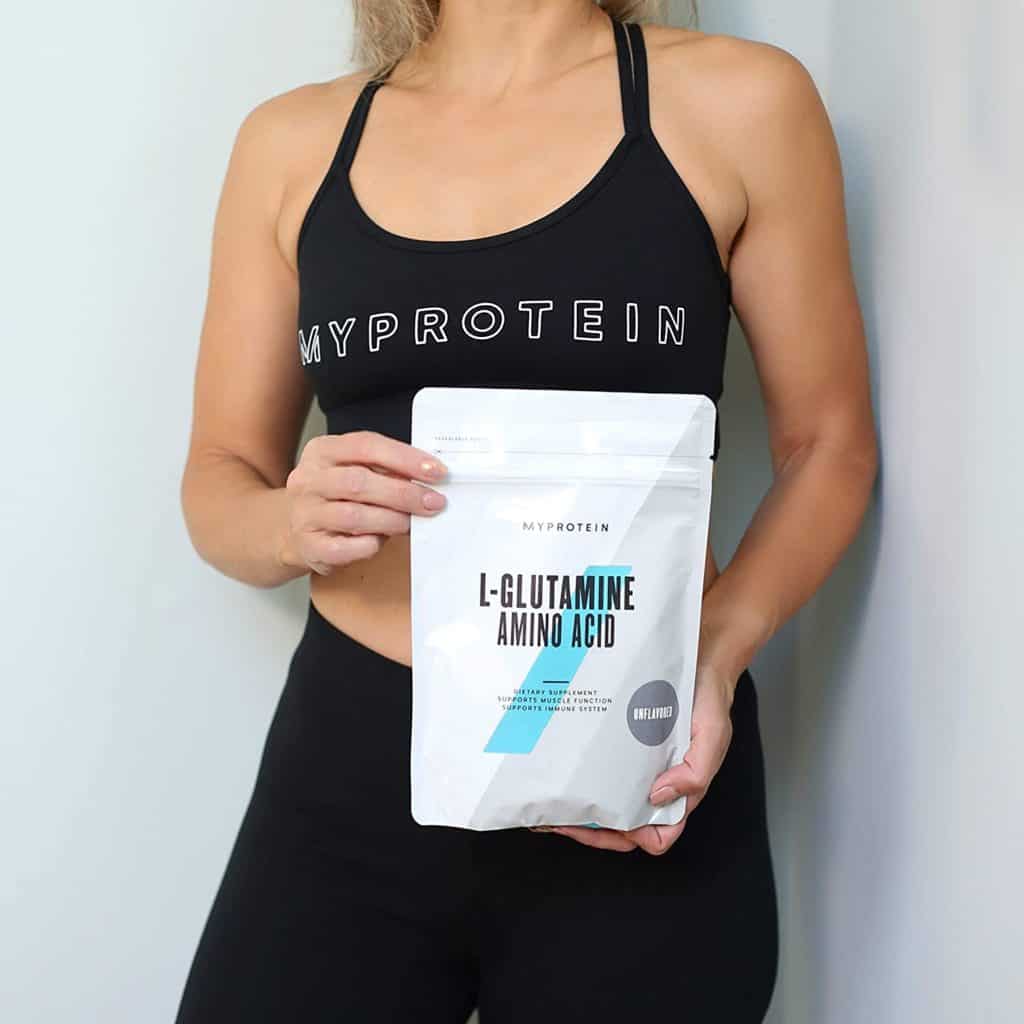
The L-Glutamine supplement powder manufactured by Myprotein is one of the most popular glutamine supplements. This high-quality product helps in building new muscles and recovering from wear and tear. Thus, it is an essential dietary supplement for people who have a strict fitness regime.
The product undergoes a series of rigorous tests to prove its purity and quality. This confirms the product’s authenticity and makes it one of the most trusted supplements in the market. It’s ideal for vegans and is free from allergens, including gluten. The packaging mentions that it is gluten free.
8. Healthy Origins L-Glutamine
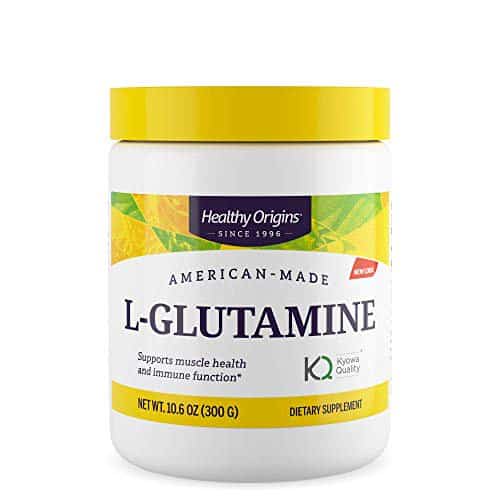
The L-Glutamine supplement by Healthy Origins is formulated to support multiple functions of your body while keeping it strong and healthy. This glutamine supplement is one of the best you can find to keep your immune system in its finest condition, as well as provide fuel to the brain and intestinal cells.
The product can regulate the transportation of nitrogen to and from the muscle tissues. It maintains amino acid balance and promotes the health of the GI tract. It’s perfect for people who work out regularly, as it helps in muscle synthesis. It is also one of the best options for vegans and people with celiac disease.
9. Dr. Osborne’s Wellness Formula L-Glutamine
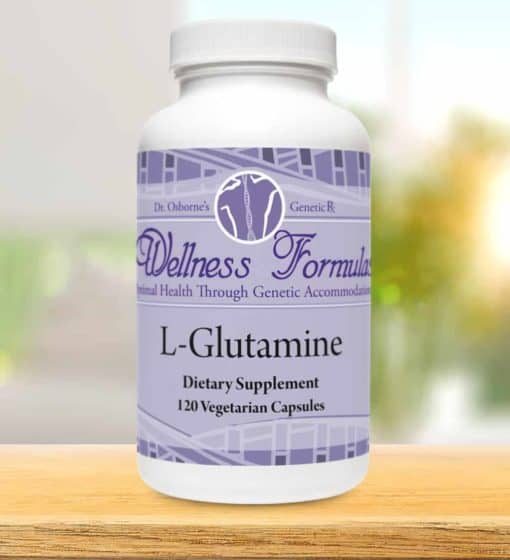
In association with Gluten Free Society, is considered one of the highest quality dietary supplements available. One of the most attractive aspects of this product is the brand goodwill associated with it. The manufacturers guarantee that it is free from gluten content.
It is also free from dairy, corn, soy, yeast, and GMOs. It contains no fillers or harmful colors and flavors. It helps in optimizing muscle growth and recovery from wounds.
It also builds immunity, balances sugar levels in the blood, and decreases alcohol and sugar cravings. It gives you comprehensive health benefits.
10. Diamond Life DIAMOND GLUTAMAX
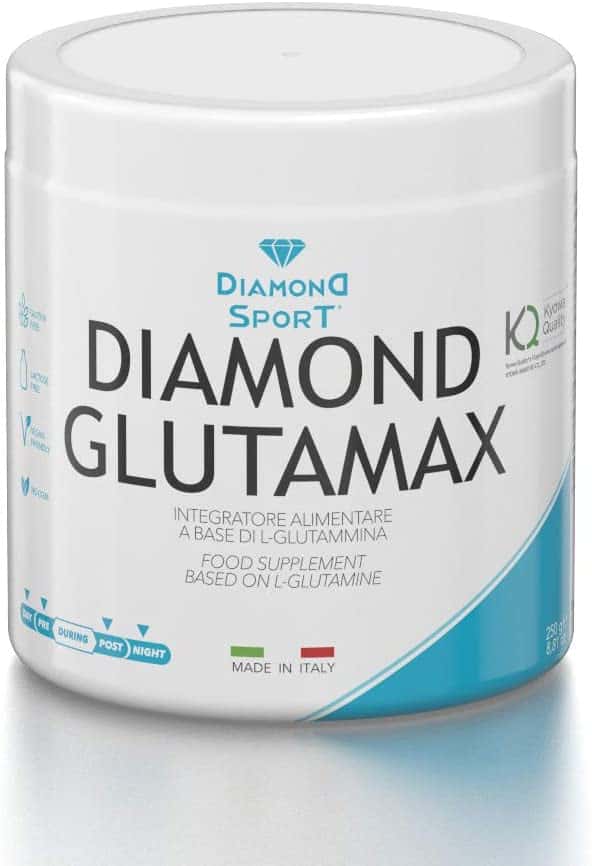
Diamond Life describes Glutamax as an L-Glutamine-based dietary supplement. Sure enough, this powder is formulated to add what’s missing in your diet.
It’s ideal for people following a hyper-protein diet and are in need to detoxify. It boosts muscle mass, making it a favorite among bodybuilders.
It is also great for people who indulge in high-intensity training because it can speed up the recovery process after physical activities.
It also protects you from producing excessive free radicals. It also works well after stress or trauma when the amino acids in your body are depleted. It is certified as gluten free.
11. NOW Sports Nutrition L-Glutamine Pure Powder
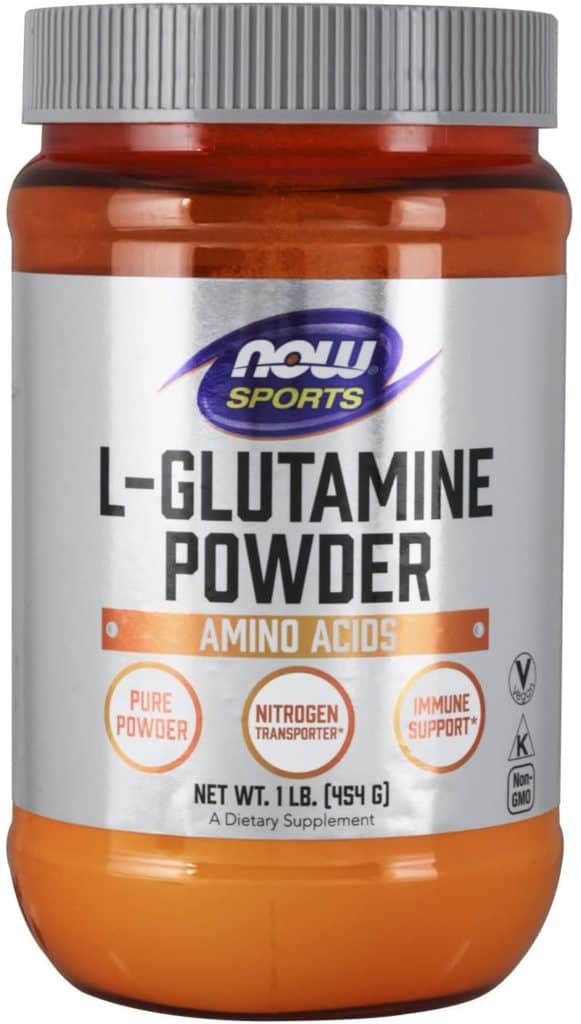
One of the best dietary products for athletes is the Sports Nutrition range by Now Foods. This range includes the L-Glutamine powder, which is a pure supplement to boost healthy living.
It helps maintain a healthy balance of nitrogen in the body, which is essential for any individual with an active lifestyle.
This supplement boosts the production and rapid growth of cells. This helps to offset stress and speeds up recovery. It also regulates the pH level in the body and maintains overall fitness.
Even though it is not certified as gluten free, its label suggests that the supplement is free from allergens, including gluten.
Many of these supplements may not bear the gluten free label on the container. But that doesn’t mean they contain gluten. It simply means that they have not had their final products tested to track the gluten content. However, they use naturally gluten free ingredients in formulating the supplements.